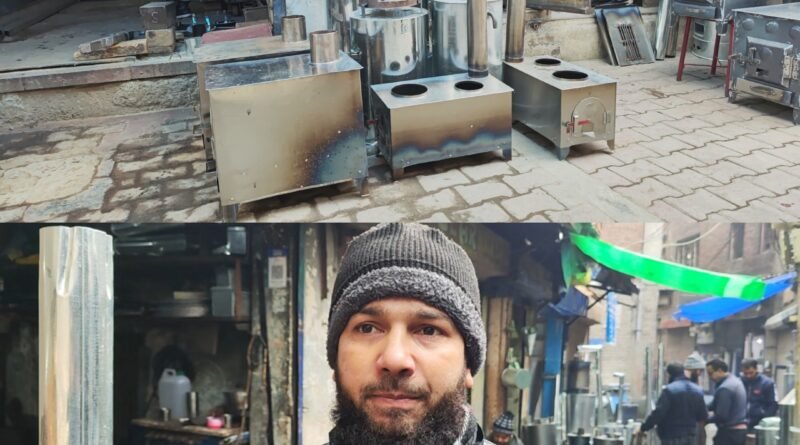Traditional Bukhari Market in Kashmir Faces Economic Challenge Amidst Growing Preference for Chinese Heating Appliances
Rafiq Bhat
Srinagar: The iconic Bukhari Market in Maisma, Srinagar, known for its traditional Kashmiri bukharis, is facing a significant economic challenge as artisans witness a decline in demand. We engaged with local artisans to understand the impact on employment and the shift in consumer preferences.
Historically, the Bukhari Market has been a hub for the creation of authentic Kashmiri bukharis, traditional stoves widely used for heating during the winter months. However, recent trends indicate a noticeable decline in the purchase of these traditional heating appliances.
Artisans, who have been crafting bukharis for generations, express their concerns over the decline in demand. This shift is attributed to a growing preference for Chinese heating appliances among consumers. The affordability and availability of these imported products are influencing purchasing decisions, posing a challenge to the local bukhari industry.
The economic impact is evident in the reduced employment opportunities for local artisans who have been the backbone of this traditional craft. With fewer buyers for the handcrafted bukharis, the livelihoods of these skilled craftsmen are at stake.
Moreover, the switch to Chinese heating appliances raises safety concerns. Unlike the time-tested and sturdy bukharis, some of the imported alternatives have been reported to be prone to fire hazards, raising questions about the overall safety of such products.
Local residents who traditionally relied on bukharis for winter heating are now grappling with the consequences of this shift. As the market dynamics evolve, there is a growing realization of the importance of preserving and supporting local craftsmanship.
Efforts to raise awareness about the cultural and safety aspects of traditional bukharis are underway, with hopes to revitalize interest in these time-honored heating solutions. The community is urged to consider the long-standing craftsmanship and safety associated with locally made bukharis, contributing to the preservation of Kashmir’s rich cultural heritage.
This situation highlights the delicate balance between preserving traditional craftsmanship and adapting to changing consumer preferences, emphasizing the need for a sustainable approach to safeguard local industries.
